Lightning Returns: What It Means to Me
By Hailinel 48 Comments
The following contains spoilers for Lightning Returns, including the ending, and a few other games.
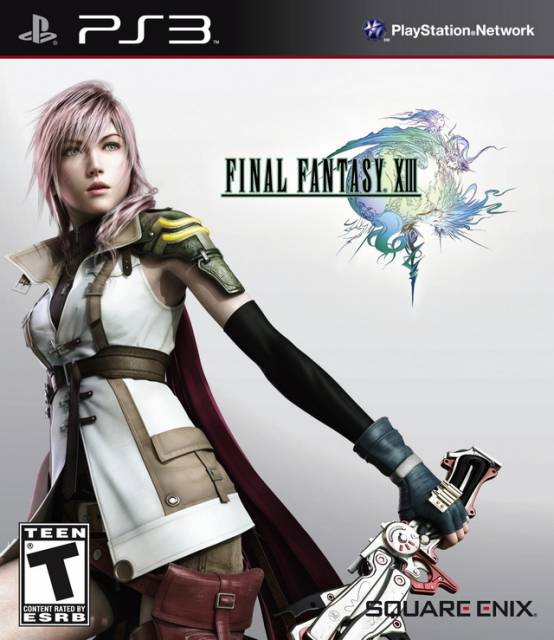
Lightning Returns: Final Fantasy XIII is an amazing game. As someone that enjoys Final Fantasy XIII and the character Lightning, to see the direction that both this series and character have evolved has been one of my joys of this past generation. It’s a series that was really never meant to be, at first; after all, Final Fantasy XIII itself ends with closure; a closure ripped wide open by Final Fantasy XIII-2, if only because the development team sought some way to both address the original game’s critics while pleasing its fans.
This could have been a disaster. I count Final Fantasy X-2 among the worst games in the franchise because of the way it unnecessarily warped the characters and world of Spira into something of a parody of itself, with an ending that wasn’t the insane effort and requirements necessary to see it in full. But rather than create sequels both incongruous and insulting, the developers instead expanded on that lore, maintaining a tone that’s somber, yet not so dark that it becomes depressing.
One of my favorite games of all time is the original Valkyrie Profile, released here in North America all the way back in 2000 when Enix was still its own entity. It happens to share quite a bit in common with Lightning Returns; whether these similarities are intentional or not, and whether the development team looked toward it and its sequel Valkyrie Profile 2 for certain inspirations, I can’t say. But as I write here, I’ll reference Valkyrie Profile quite a bit in helping explain my attitude toward Lightning Returns.
Protagonists and Narratives
At the core of the story is Lightning, of course. The protagonist, she begins the game having been pulled into the service of the god Bhunivelze; the highest power in the Final Fantasy XIII universe. With the world due to end in a matter of days, she needs to save as many souls as she can in order to allow them to move on to the next work that Bhunivelze is about to create. At regular intervals, she must report back to Hope, and deliver the Eradia energy she has gathered from those souls she saves in order to extend the time she has remaining.
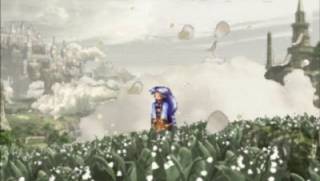
At the most rudimentary level, it’s a premise not that dissimilar from Valkyrie Profile. In this game, the protagonist is Lenneth, a Valkyrie of Asgard awakened by Odin to recruit the souls of dead warriors to serve the gods at Ragnarok; the final battle at the end of the world. She must regularly report back to Freya and deliver worthy Einherjar to Valhalla for the coming war with Surt and the frost giants.
However, there is more to each story than the initial premise would indicate. Both Lightning and Lenneth are manipulated by their respective deities and are expected to do little more than serve like good little worker bees. But through various twists in their narratives, greater truths are revealed.
In Lenneth’s case, she ultimately discovers that been born into a human incarnation, and after her death, her memories of this life were locked away by the gods. She had only been reborn temporarily as a human in order to make her more apt at recruiting souls when the time came, but her human life was a remarkably short, tragic one, filled with abuse. She barely avoided being sold into slavery only because a village boy, Lucian, the only being in any plane of existence to show her actual compassion and love, managed to convince her to run away with him, and yet she died shortly after because of a tragic mistake.
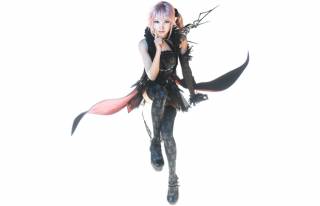
Lightning, on the other hand, begins the game with dead emotions. She presumes for the longest time that they had been cast away by Bhunivelze, as they would get in the way of her mission; the enormity of the task she’s given would be soul-crushing otherwise. Her primary motivation for carrying on in her mission is Bhunivelze’s promise that her deceased sister Serah will be resurrected in the new world, yet she can’t even feel the joy at such a prospect.
But unlike Lenneth, whose memories were indeed locked away by the gods, it is revealed at the game’s end that Lightning’s loss of emotion was brought upon by herself. She had worked so hard to shun her perceived weaknesses and reject who she is on the inside that when she entombed herself in crystal in XIII-2, her heart, and the memory of Serah she had intended to keep safe within it, splintered away into its own entity in Lumina. One that antagonizes her while at the same time pushing her in the direction of what her heart truly wants.
As a friend of mine put it, it’s very Kingdom Hearts in that fashion. But unlike Kingdom Hearts, there’s no Disney whimsy here to lighten what is, in fact, a very dark tale. Lightning is so self-assured in what she thinks she wants, and what she thinks she has to do, that she doesn’t understand her heart’s true desire until it’s almost too late. Similarly, when Lenneth awakens to her memories, her journey is also almost brought to an end by the gods that wished for her to be nothing more than a puppet; it’s through the aid of the Einherjar she gathered and a little necromantic power on the side that she is restored to life, more powerful than ever before.
Antagonism
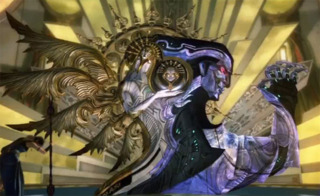
Though Lightning’s journey begins with her cast in the role of something like Bhunivelze’s Valkyrie and she grows in power with each passing day, she comes to realize that the god has something more in store for her. Bhunivelze is testing her, wishing for her to replace the fallen goddess Etro and restore the cycle of human death and rebirth. Where his plan falters, however, is that in his desire to create a new world, one that won’t come crashing to an end as before, he wishes to wipe all memory, history and emotion from humanity, purging the souls of the deceased from existence. He is a cruel, callous god, incapable of seeing or understanding the human soul, and thus he’ll simply destroy what he does not want.
Though Lightning lacks the capacity to feel, she understands what truth this means, and how it should matter to her. It would mean that Serah would never be reborn; whatever Bhunivelze creates in her place couldn't possibly be the same. And after a life filled with being used and manipulated by one higher power after another, from fighting the fal’Cie in Final Fantasy XIII to serving as Etro’s protector in XIII-2 to her role as Valkyrie in Lightning Returns, she understands that the gods would only continue to manipulate humanity, and thus the only way to free humanity from that cycle is to slay God himself.
Similarly, Odin and Freya had no love for humans, but they’re betrayed by Loki, who has stolen ultimate power for himself and struck Odin down. When Lenneth, reborn and with her memories intact, comes across Freya mourning Odin’s death, she cares nothing for them. She’s after Loki; not because he killed Odin, but because she unwittingly sent Lucian, the only being in all of existence that showed her love, to Valhalla, where Loki used and murdered him. Lenneth doesn’t care about higher powers; she just wants justice and forgiveness for what she’s done.
Killing a God
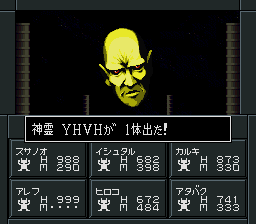
Lightning Returns ends in really the only logical way it can; with Lightning standing up to the creator and using all of the power that he imbued her with in order to kill him. It’s a relatively common idea in video games for humanity to fight against gods. For example, it’s an aspect that’s frequently seen in the Megami Tensei franchise, which has even gone so far as to include an incarnation of the Judeo-Christian god as a final boss on more than one occasion. Persona 4 begins with a murder investigation and ends with a team of high school students engaging in battle with an ancient Japanese creation goddess. And despite Lenneth’s already divine status as a Valkyrie, her connection to humanity is what drives her to end Loki’s life.
As for Lightning, she was given power to potentially replace a fallen goddess of death, and though she lands a serious blow, she can’t end the battle on her own. She needs the souls of her friends, and all of humanity, to serve as a blade that can kill Bhunivelze once and for all. It’s a story point that I seem to gravitate toward a lot, and yet it’s old as humanity itself. The struggle against the divine, and overcoming it through that human will. In the end, that Lightning manages to kill Bhunivelze is no more or less sensational than the Investigation Team, and Yu Narukami in particular, taking down Izanami at the end of Persona 4.
The Ending
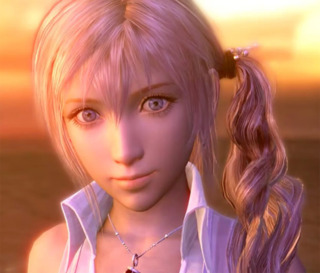
As is promised in the beginning, at the end of Lightning Returns, the world is destroyed. But humanity is able to live on in another world, free from the gods that had oppressed it. And from the personal standpoint of Lightning, she’s able to live a new life, reborn with memories of her friends intact, her heart whole, and at peace. After such a long journey, Lightning, or Claire Farron perhaps, is able to rest. Her final reward is well deserved and justified after the struggles she’s needed to face, both internal and external, in order to attain it.
The World
Nova Chrysalia, what remains of the world of Pulse from Final Fantasy XIII and XIII-2, is not in a good state. It’s a world that’s been forced to stand still for five hundred years. With Etro’s death and the cycle of death and rebirth broken, what humans are left live an existence that’s part purgatory, part hell, in which people can’t age or mature, and new life can’t be born. Children remain children mentally and emotionally despite the hundreds of years of experience they’ve been forced to endure. Yet they can still die as easily as you or I can, falling prey to sickness or injury. With little other choice, they live their lives day in and day out, emotions worn by the unnaturally long years they’ve lived.

It’s a near hopeless, forsaken world that Bhunivelze can’t save, populated by beings that he ultimately cares nothing for. It’s Lightning who must grant its people some measure of peace, filling the holes in their hearts and lives despite the gaping emptiness that exists in her own. She is ultimately rewarded for her efforts, as stated above, when the souls of humanity join her in the final battle.
Despite the depressing, cruel nature of the world and the plight of those forced to live in it, Lightning Returns does offer a degree of levity, both in its story and world, as well as in its gameplay. Though missions in the game can be incredibly dark, like a murder mystery that’s gone unresolved, or helping a child actress that’s lived for so long that she’s forgotten how to cry for herself, there are others that provide a balance, offering lighter, more absurd moments and showing that people haven’t lost their spirit. Like Lightning being forced to say a ridiculous code phrase to gather fireworks from ladies dressed in chocobo attire. Or being rewarded by completing missions for the game’s Biggs and Wedge, which results in them becoming buskers that play Terra’s Theme from Final Fantasy VI, complete with vocals, of a sort. (Ba da DA da daaaaaaaa!)
Lightning’s interactions with the moogles are particularly notable for their silliness; an appropriate tone for the cute, somewhat absurd nature of these fantastic creatures. Interactions like the way that they swarm around Lightning excitedly, or the way that she helps find particular a trio of lost moogles back to the village by throwing them into the stratosphere. Or particularly Lightning’s reunion with Mog, in which he flies toward her in excited slow motion, only to be comically swatted away, as she’s not interested in offering a hug. Moments like these help give the game’s dreary world splashes of color and life, and remind us that there’s still worth in this doomed world.
Costumes, or “I feel pretty, oh so pretty…”
Speaking of the game’s lighter side, there is of course the schemata system, which is so key to the way that the game plays. Much has been made about the extensive wardrobe that Lightning can acquire in the game, as well as how revealing or ridiculous some of these costumes and accessory adornments are. Unlike the game’s world, where in what humor exists as a part of the story, these costumes, and their looks, are under the player’s direct control. It’s up to each individual if they wish for Lightning to look serious, or sexy, or ridiculous. It’s, in short, a system that helps allow the player to get what personal enjoyment they wish out of the game.
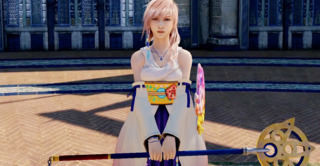
I personally tended to shy away from the more absurd garbs and accessories my first time through. For the most part, my schemata were the Spira’s Summoner garb (the FFX Yuna DLC costume), the Red Mage garb (and eventually, the accompanying hat adornment), and various samurai and warrior style schematas. Part of the way I equipped Lightning was born out of gameplay, of course; each garb affects Lightning’s stats in different ways, and different garbs come with certain abilities that are preset, making them more ideal for certain situations than others. I personally find the Spira’s Summoner garb one of the most useful costumes in the game, regardless of its appearance. On the other hand, the Red Mage costume, in addition to being fairly versatile in its abilities, looks pretty snappy. Add the hat, and you have the ensemble I most enjoyed running around in.
If other people prefer Lightning in the Miqo'te Dress, or in the more revealing outfits like the Watery Chorus, or to give Lightning the absurd facial hair adornments, I’m not going to argue. The outfits are there, and there are plenty of options for just about any taste, whether that taste leans more toward playing it straight, being silly, or searching for garb combinations that could potentially break the game. The point is that the system is incredibly versatile, both in terms of customizing Lightning for the purposes of gameplay as well as aesthetics. Play how you want, and get what you want out of it.
The Nature of Time
A key element of the gameplay in Lightning Returns is the flow of time, as well as the nature of having to deal with a time limit. It’s a concept that other games have tackled in different ways; The Legend of Zelda: Majora’s Mask is built around the concept of resetting and manipulating time in order to complete everything the game asks of the player in a three-day period. Dead Rising is much more strict, in that time is constantly running and the player has very tight windows in which tasks must be completed if the player wishes to see the game through to its true end. And Valkyrie Profile, which doesn’t feature an active timer or a daily countdown, forces a time limit upon the player in the form of chapters, each divided into a set number of turns. Any time Lenneth takes an action such as entering a dungeon or a village, turns are consumed, and once all of the turns are used up, the chapter is forced to end.

The path to Valkyrie Profile's best ending is also quite possibly the most complex of all of the games listed here. In order to uncover the truth behind Lenneth’s past and the road to the final battle with Loki, the player must engage in an elaborate and very specific set of actions throughout the game while monitoring numerical values associated with Lenneth to ensure that they are never too high (which can block off the game’s best ending) or too low (which can trigger the game’s worst ending). It’s a byzantine path that’s unfortunately difficult if not impossible to uncover without the use of a FAQ and one of the few serious strikes I can really level against the game. Yet even so, its difficulty and obtuse obscurity mirrors the difficulty that Lenneth faces in following the orders of the gods while pursuing her own objectives.
Lightning Returns is, by contrast, actually not all that difficult to manage. Though the time limit seems daunting at first, the game does provide tools that affect the clock. Specifically, the power of Chronostasis can be used to temporarily stop the clock and give Lightning more time before the current day is out. Its low cost also makes it a power that can be easily used over and over, so long as the player has the points to spend on it. Also, unlike a game like Dead Rising, time’s passage pauses while in battle, and the objectives are designed in such a way that even without the constant use of Chronostasis, achieving the game's real ending is not a strategy guide-necessary task. Chronostasis certainly helps, and the player needs to be mindful of the clock, but the deadlines are rarely as tight as they are in Frank West’s zombie-slaying jamboree.
What ultimately matters is that Lightning completes missions to earn Eradia, which she must turn in at the end of each day (beginning and ending at 6AM sharp), and at certain thresholds increases the amount of days she has remaining. The impetus for performing well is there, but that impetus isn’t so strict that the player ever feels trapped in a dead end, or in need of outside help.
The Music
The soundtrack to Lightning Returns is the culmination of three games’ worth of music. It features battle themes and remixes of tracks from XIII and XIII-2 in addition to its own original music, producing a sum total soundtrack that feels like a natural evolution. But the game doesn’t simply draw from the XIII series, but from Final Fantasy as a whole. The game’s cities are littered with street performers that play remixes of various tunes from past Final Fantasy titles, it’s a charming touch that adds a little flair to the game without drowning the soundtrack in fanservice.
The ways that some of these existing tracks are used is inspired. There is, for example, a battle in the game that pits Lightning and a chocobo against an extra powerful chocobo eater. And the theme chosen for this battle in particular is the hilariously metal red chocobo theme from Final Fantasy XIII-2.
Though, a little fanservice also doesn’t hurt. Should the player win a battle while wearing any of the special Final Fantasy-character inspired DLC garbs, the standard victory fanfare is replaced with the fanfare of the representative game. And if there’s one version of the classic fanfare I love more than any of the others, is the version used in Final Fantasy X. I heard it a lot in the nearly fifty hours I've pumped into the game, and it's great every time.
But it’s not all just reused tracks, old or new. The original music composed for the game is very atmospheric, and again suited to the game’s tone. The soft, vocal melody that plays while on the Ark in the space between days is a somber tune; one that brings to mind both Lightning’s status as a servant of God and the haunting nature of the messed up world.
And then there’s the theme to the final battle with Bhunivelze; a thirteen-minute-long operatic cacophony bringing to mind battles from Lightning’s past as well as past entries in the franchise. Its length, and the dissonant madness of confronting the almighty god it represents, brings to mind in some ways Dancing Mad, the equally cacophonous, operatic theme to the final battle against Kefka in Final Fantasy VI. Indeed, one of Bhunivelze’s most powerful attacks, seen in his second form, is named for that theme.
The Use of Mythology
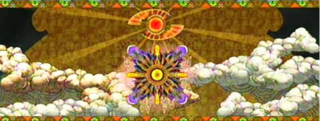
Behind the Final Fantasy XIII series, there’s something called the Fabula Nova Crystallis mythos; a fictional mythology that was originally intended to serve as a shared backbone between Final Fantasy XIII, Final Fantasy Agito XIII, and Final Fantasy Versus XIII. Things changed, of course; Agito and Versus are no longer explicitly named for XIII, though their connection to the mythos is supposedly still there. What remains to be seen, however, is how the exploration of this mythos in Final Fantasy XIII-2 and Lightning Returns will relate to other games, particularly Final Fantasy XV. The god at the center of the mythos is now dead; killed by Lightning. Does this mean that plans for Final Fantasy XV and its relation to Fabula Nova Crystallis have changed drastically since its days as Versus XIII? A friend of mine, one who is particularly into world building, pondered whether XIII-2 and Lightning Returns may have in fact used concepts that were intended for Versus. Is it possible that the new world seen in the end of Lightning Returns is the same that will be seen in Final Fantasy XV? Will Final Fantasy XV still reference the gods and the mythos surrounding them as a separate continuity, allowing dead gods to be alive again? I guess we’ll have to wait and see on that.
On a related note, as touched upon before, Lightning Returns otherwise takes bits and pieces directly from Norse mythology. Lightning is more or less a Valkyrie in service to a god. The Eradia she gathers is delivered at the end of each day to Yggdrasil, the world tree; a name taken from a tree of the same name in Norse myth. And even further, Odin, Lightning’s Eidolon dating back to the original XIII, is named for the god of thunder at the top of the pantheon. These references, while overt and in some cases aren’t much more than surface-level, are handled well. Certainly, they carry more meaning than similar references in past games, such as Final Fantasy VII’s Midgar and Nibelheim; references to the human world of Midgard and the frozen hell of Niflheim. References that, in all honesty, don’t make that much sense in or out of the game’s context.
Conclusion
If you managed to make it this far without summoning the teal deer, I thank you. I can’t say that there’s anything profound here for me to end on. My goal was to explain some of the ways in which I find Lightning Returns so fascinating and enjoyable with some context from another game that I hold in the highest of regard. Lightning Returns struck a strong chord with me; one that few RPGs have. It is a game that I find fantastic and invigorating for numerous reasons, and a lengthy, rambling blog post such as this can only get so much of that across. The last thing I’ll say here is this:
Lightning Returns may very well be one of my favorite games of all time. That’s a difficult bar to truly judge until enough time has actually passed, but it’s an argument that seems plausible to me and that doesn’t require hyperbole in order to make. Lightning’s journey is a grim, sad, goofy, and ultimately joyous one, and it’s an experience that few games have been able to match in my own heart.